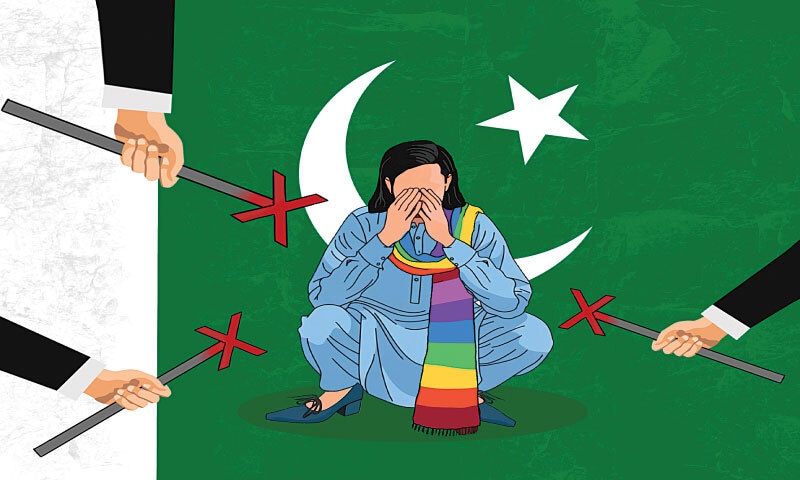by SUNNY ZIA

Pakistan’s transgender and Khwaja Sira communities are navigating a shifting legal landscape that alternates between recognition and rejection.
The body is a human being’s first home and first identity. Now, imagine being born into a home that does not acknowledge your reality.
That is only a vague reflection of how the life of a transgender person begins. The term “transgender” has received much attention in recent years, yet it remains widely misunderstood.
Many conflicting definitions circulate around it. Some believe that only individuals born with ambiguous genitalia are truly transgender. Others connect the term with the traditional Khwaja Sira culture of the Subcontinent. Some even make harsh and unfounded claims that transgender persons are simply men or women cross-dressing to attract the opposite gender for physical relationships.
What is often overlooked is that behind every transgender person’s life experience lies a medical condition — that of gender dysphoria. It is a deeply misunderstood and rarely discussed condition, even among qualified medical practitioners. To understand it, imagine being forced to wear shoes that are too small for your feet. They hurt with every step, but you are told you must keep wearing them.
Now imagine that the pain is not just physical; you are judged, shamed and even abandoned by your family and friends for wanting to take them off. You are told that this discomfort is your duty, justified by culture, religion or tradition. Now take that feeling and apply it to your own body. Imagine that the thing causing you pain is not just a pair of shoes, but your own body not matching who you truly are. That is what a gender dysphoric person lives with every day.
In 2011, the Supreme Court of Pakistan took a significant step by recognising the rights and dignity of gender-diverse communities, offering long overdue visibility to those pushed to the margins. The judgment not only called for an end to invasive gender verification by medical boards, but also urged institutions such as the National Database and Registration Authority (Nadra) to abandon the dehumanising labels once suggested for transgender persons.
Dawn for more
